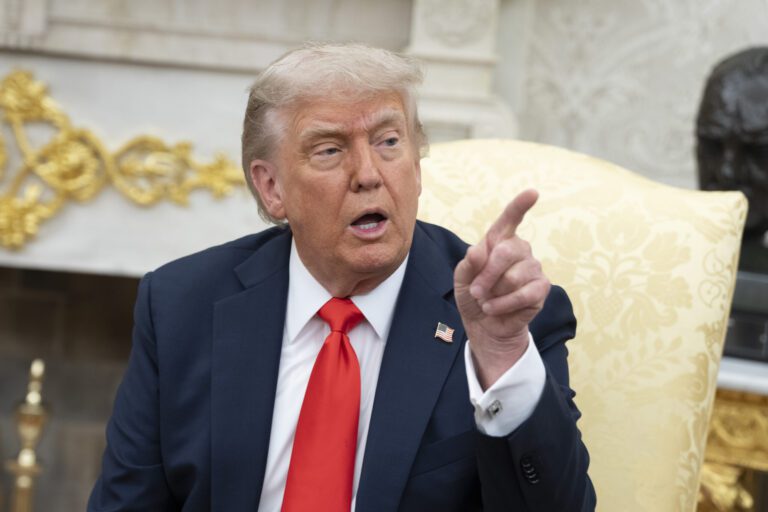The United States has conducted direct military operations with Israel to launch air strikes on Iran’s nuclear facilities to significantly escalate to prevent Iran from developing nuclear weapons.
On Saturday (June 12), Donald Trump announced through the Truth Society that the U.S. military had successfully attacked three major nuclear sites in Iran: Fordo, Natanz and Isfahan (who misspelled). He said all U.S. planes were safely withdrawing from Iran Airlines after placing a bunch of bombs on a serious Fortune facility.
“We have completed a very successful attack on three nuclear sites in Iran, including Fordo, Natanz and Esfahan,” he wrote. “All aircraft are now located outside Iranian space.
The strike marks the first time the United States is directly involved in the intensified conflict between Israel and Iran. Located deep down at the hill, about 100 miles south of Tehran, the Fudo site has long been considered a nearly impermeable attack of traditional attacks, requiring specialized U.S. weapons such as the 30,000-pound GBU-57’s giant artillery penetrator, provided only by the B-2 Stealth Bomber.
The strike decision followed more than a week of Israeli operations against Iran’s air defense, missile capabilities and nuclear infrastructure. Israeli officials believe that only U.S. military assets can effectively destroy Iran’s most powerful nuclear facilities. These actions follow Iran’s repeated warnings that vows to retaliate if the United States is directly involved in the conflict.
Trump has previously campaigned to keep the United States away from the New Middle East War, and his strike is a crucial strike to ensure Iran does not buy nuclear weapons. Despite Trump’s initial re-engagement of nuclear talks with Iran, his stance has strengthened after a recent Israeli strike and concerns about Iran’s potential attack on U.S. assets in the region.
In recent days, Trump has called for Iran’s “unconditional surrender” and claims our dominance over Iranian airspace, while also sending a warning to Iran’s supreme leader Ayatollah Ali Khamenei. Khamenei warned that U.S. military participation would be “irreparable” damage.
The U.S. has ruled out the deployment of ground forces to Iran, but the air strikes have introduced new uncertainty, a conflict that began with an attack on Iranian facilities earlier this month. Israel insists that its actions are necessary to prevent threats, insisting that only military and nuclear sites are targeted. However, Iranian authorities reported ongoing strikes that resulted in significant civilian casualties.
Iran responded to Israel’s missile and drone attacks, some of which were intercepted by Israel’s defense, although both sides were reportedly injured and killed. Although Iran insists that its nuclear program is for peaceful purposes, Israel and the United States still do not believe it, citing potential regional and global risks posed by nuclear weapons.
The U.S. intelligence assessment has previously said Iran stopped its nuclear weapons program in 2003, but the latest developments have rekindled concerns about wider regional conflicts.


